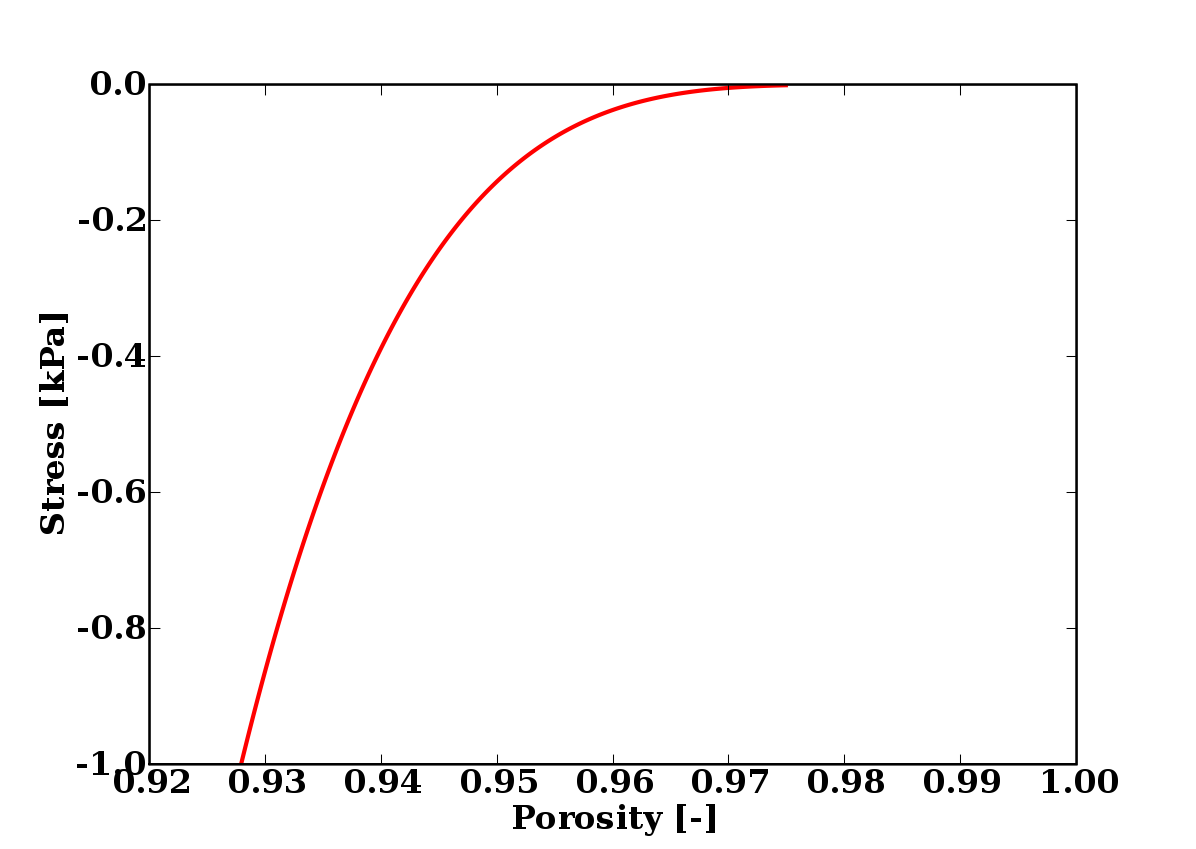Campbell-Ingmanson
Constitutive Equations » Stress-Strain » Campbell-Ingmanson
Description
At concentrations below the gel point, there is no fibre network, and therefore, no fibre network stress. Ingmanson and Whitney (1954) introduced an initial concentration to Campbell relationship (Campbell, 1947), so that it can better describe the fibre network stress-strain behaviour at concentrations close to the gel point.
Application
The Campbell-Ingmanson relationship has a similar applicability region to the Campbell relationship, besides the fact that the former can also describe the fibre network stress-strain behaviour at concentrations close to the gel point.
The Campbell-Ingmanson relationship describes well the stress-strain behaviour of fibre network for individual compression or relaxation, but not for cycles of compression and relaxation. Regarding concentration, it is applicable up to fibre concentrations at where water flows out of the fibre walls (i.e. at approximately 20 percent dryness).
It is therefore suitable in the forming and vacuum sections.
Background
The Campbell-Ingmanson
relationship introduces a small
modification to the Campbell
relationship. According to the
Campbell-Ingmanson
relationship, there is an initial
concentration, ![]() , at which the fibre network start being formed
and, therefore, can bear stress:
, at which the fibre network start being formed
and, therefore, can bear stress:
where ![]() is the concentration,
is the concentration, ![]() and
and ![]() are
the
applied a reference stress and
are
the
applied a reference stress and ![]() and
and ![]() are
fitting
constants.
are
fitting
constants. ![]() is introduced just to
avoid complex units in
is introduced just to
avoid complex units in
![]()
Bibliography
Campbell, W. B., 1947, Pulp and Paper Magazine of Canada 48(3), 103.
Ingmanson, W. L., and R. P. Whitney, 1954, Tappi Journal 37(11), 523.


